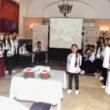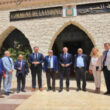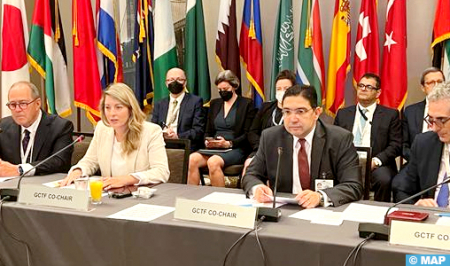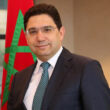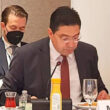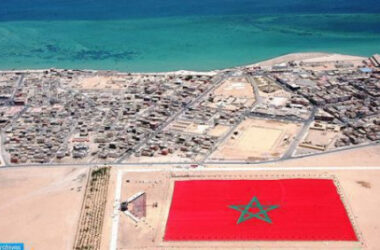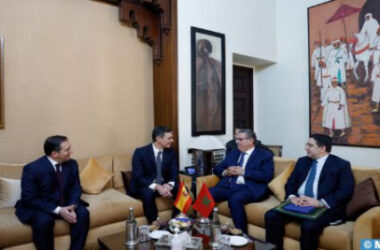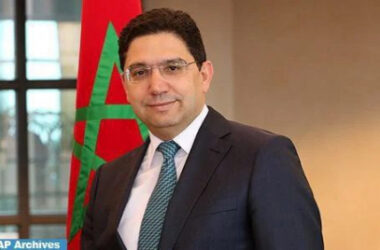In his opening remarks at this meeting held on the sidelines of the 77th UN General Assembly, Bourita said that the international security’s changing landscape should not lead to neglect the shared responsibility to fight terrorism.
The Minister has, in this sense, highlighted the importance of “true multilateralism”, expressing Morocco’s conviction that such spirit and commitment is essential for the next decade, especially in a context where the threat posed by terrorist groups remains a priority.
He further indicated that the GCTF meeting is an opportunity to reflect on the achievements and effectiveness of the Forum during its first decade, recalling that efforts have focused in particular on reducing the vulnerability of people to terrorism, through prevention, effective combating recruitment and incitement to terrorism.
Presenting the progress made by the Forum under the Moroccan-Canadian co-chairmanship, Bourita stressed the efforts made during the first decade to “maintain the apolitical and consensual nature of the Forum.”
This forum is now oriented towards pragmatism and action to strengthen international efforts to combat terrorism and violent extremism, said the Moroccan minister.
He noted that the Forum’s action draws from the relevant existing international legal framework, in particular the UN Charter, the relevant UN Security Council resolutions and the UN Global Counter-Terrorism Strategy.
“We have adopted an innovative recipe combining political leadership with practitioner expertise in a state-centered process while expanding our engagement with various partners in the UN system and GCTF-inspired institutions and non-governmental organizations,” continued Bourita.
With this approach, the GCTF has managed to build consensus on emerging issues, paving the way for other international organizations to develop the standards needed to structure the actions of the international community to address critical challenges, he said.
The Forum has done a “remarkable” work through a proactive approach to foreign terrorist fighters, border security management, new information technologies and communication, the fight against terrorist financing while preserving the civic space, he further noted.
These achievements, which are based on commitment, useful contribution and pioneering leadership, are the result of preserving the core values of the GCTF as enshrined in the Forum’s framework documents, Bourita affirmed.
“The GCTF has undoubtedly become a central player in the international architecture for preventing and combating terrorism and violent extremism,” said Bourita, welcoming the “constructive” and “strong” partnership between UN stakeholders and the Forum.
He also acknowledged that on the eve of a new mandate cycle both at the Forum and its working groups, the fight “is unfortunately not yet over” as terrorists “continue to adapt their tactics, seeking safe havens, harboring territorial ambitions, and seeking new recruits among vulnerable individuals and communities.”
“In this context, we must maintain GCTF’s identity and core values because this Forum is more relevant and necessary than ever,” he insisted, stressing that during its various co-chairmanships, Morocco has been committed to placing GCTF’s effectiveness, and contribution to a safer world above any narrow interests.
He concluded that during the co-chairmanship with Canada, the focus was on the future despite the COVID-19-posed difficulties and “we have managed, with the work of all members, to chart a significant course for the GCTF for the next 10 years with the adoption of the Vision Strategy for the next decade.”
Launched in 2011, the GCTF is a platform co-chaired by Morocco since 2016. It is composed of 30 members (29 countries + the European Union) and cooperates closely with many international, regional and sub-regional organizations, including the UN.
Its structure is built around five working groups on Countering Violent Extremism, Foreign Terrorist Fighters, Criminal Justice and the Rule of Law, Capacity Building in West Africa, and Capacity Building in East Africa. Its activities regularly bring together policymakers and experts in the fields of counter-terrorism.



